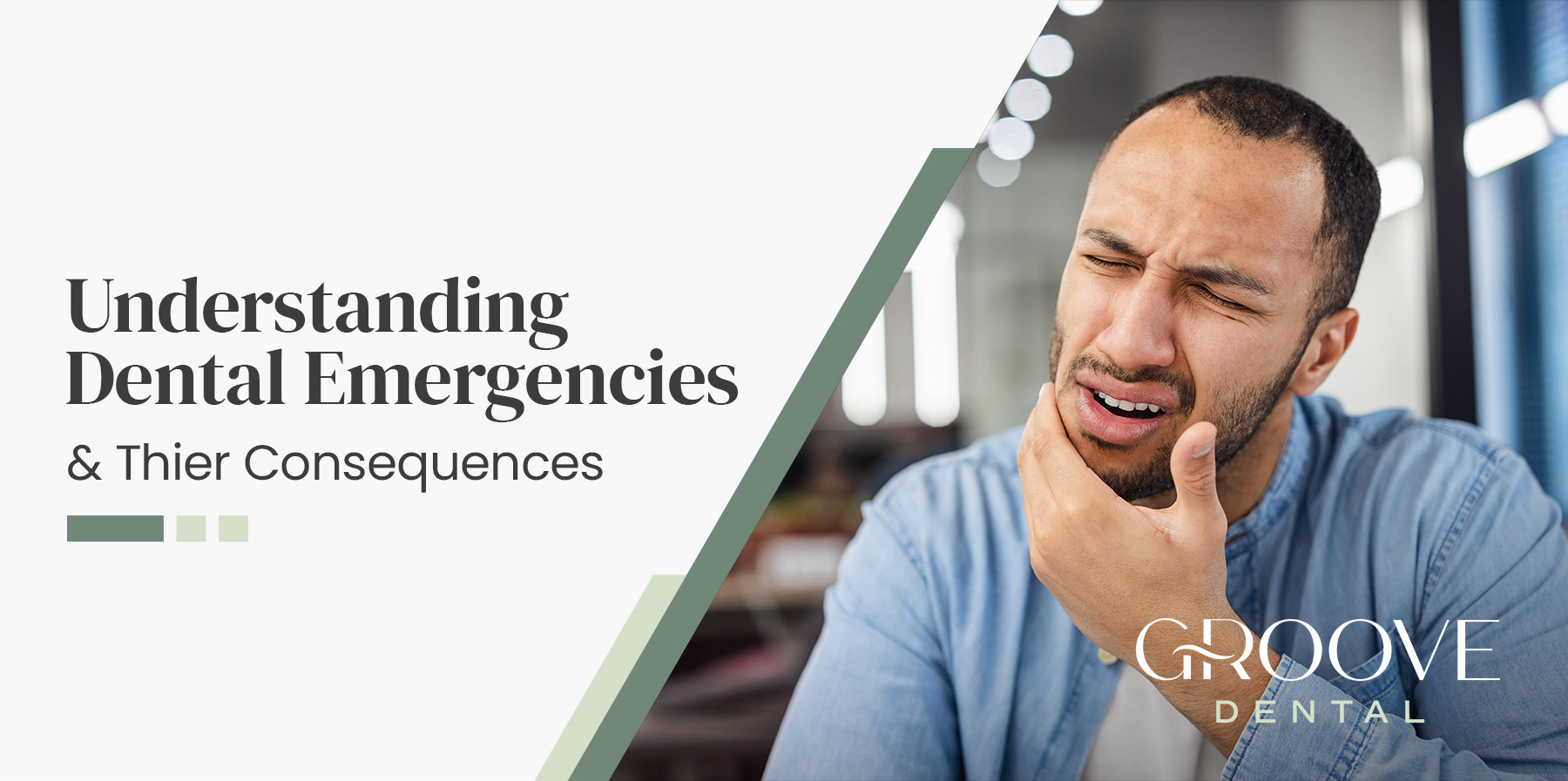Understanding Dental Emergencies and Their Consequences
Dental emergencies strike suddenly, causing significant pain and discomfort. In such instances, it’s crucial to seek immediate assistance from an emergency dentist. Whether you’re grappling with a severe toothache, a broken tooth, or mouth injury, timely intervention is essential. Differentiating between a genuine dental emergency and a situation that can wait, along with understanding the consequences of delaying treatment, is vital for preserving oral health and well-being.
Examples of Dental Emergencies
Severe Toothache
Intense and persistent tooth pain can indicate an underlying issue such as an abscess, infection, or decay. Ignoring a severe toothache can lead to further complications and potentially require more invasive treatments.
Broken or Knocked-Out Tooth
Accidents happen, and a broken or knocked-out tooth requires urgent dental care. In some cases, if the tooth is intact and handled properly, it can be reinserted by a dentist. Quick action is essential to increase the chances of saving the tooth.
Bleeding Gums
While mild gum bleeding during brushing or flossing is common, excessive bleeding that doesn’t stop could indicate a more serious problem such as gum disease or injury. Seeking prompt dental attention can help address the underlying cause and prevent further complications.
Infections or Abscesses
Dental infections or abscesses can cause swelling, pain, and even fever. These conditions require immediate treatment to prevent the spread of infection and potential complications such as sepsis.
Lost Dental Fillings or Crown
A lost filling or crown can expose the underlying tooth structure, leading to sensitivity and increased risk of decay or damage. Seeking emergency dental care can help protect the tooth and prevent further problems.
What is NOT a Dental Emergency?
Minor Tooth Sensitivity
Mild sensitivity to hot or cold foods and beverages is common and typically not considered a dental emergency. However, if sensitivity becomes severe or persistent, it may indicate an underlying issue that requires attention.
Slight Toothache
A mild toothache that comes and goes may not require immediate dental care. However, if the pain worsens or persists, it’s important to schedule a dental appointment to identify and address the cause.
Lost Crown or Filling With No Pain
If a filling or crown comes loose but doesn’t cause any discomfort or sensitivity, it may not be considered an emergency. However, it’s still important to contact your dentist promptly to have it repaired or replaced to prevent further damage.
Consequences of Avoiding Emergency Help
Ignoring dental emergencies or delaying treatment can have serious consequences:
Prolonged Pain and Discomfort
Dental emergencies often cause intense pain and discomfort, which can significantly impact daily activities such as eating, speaking, and sleeping.
Increased Risk of Complications
Untreated dental problems can lead to serious complications such as infections, abscesses, and tooth loss. These issues may require more extensive and costly treatments in the future.
Spread of Infection
Dental infections can spread to other parts of the body, leading to systemic health problems and potentially life-threatening conditions if left untreated.
Permanent Damage to Teeth and Gums
Delaying treatment for broken or damaged teeth can result in permanent damage or loss of the affected tooth. Prompt intervention by a dentist can help preserve dental function and aesthetics.
Conclusion
Recognizing dental emergencies and seeking timely treatment is essential for preserving oral health and preventing complications. While not all dental problems require immediate attention, it’s important to err on the side of caution and consult with a dentist if you’re unsure. Remember, proactive dental care is key to maintaining a healthy and beautiful smile for years to come.




